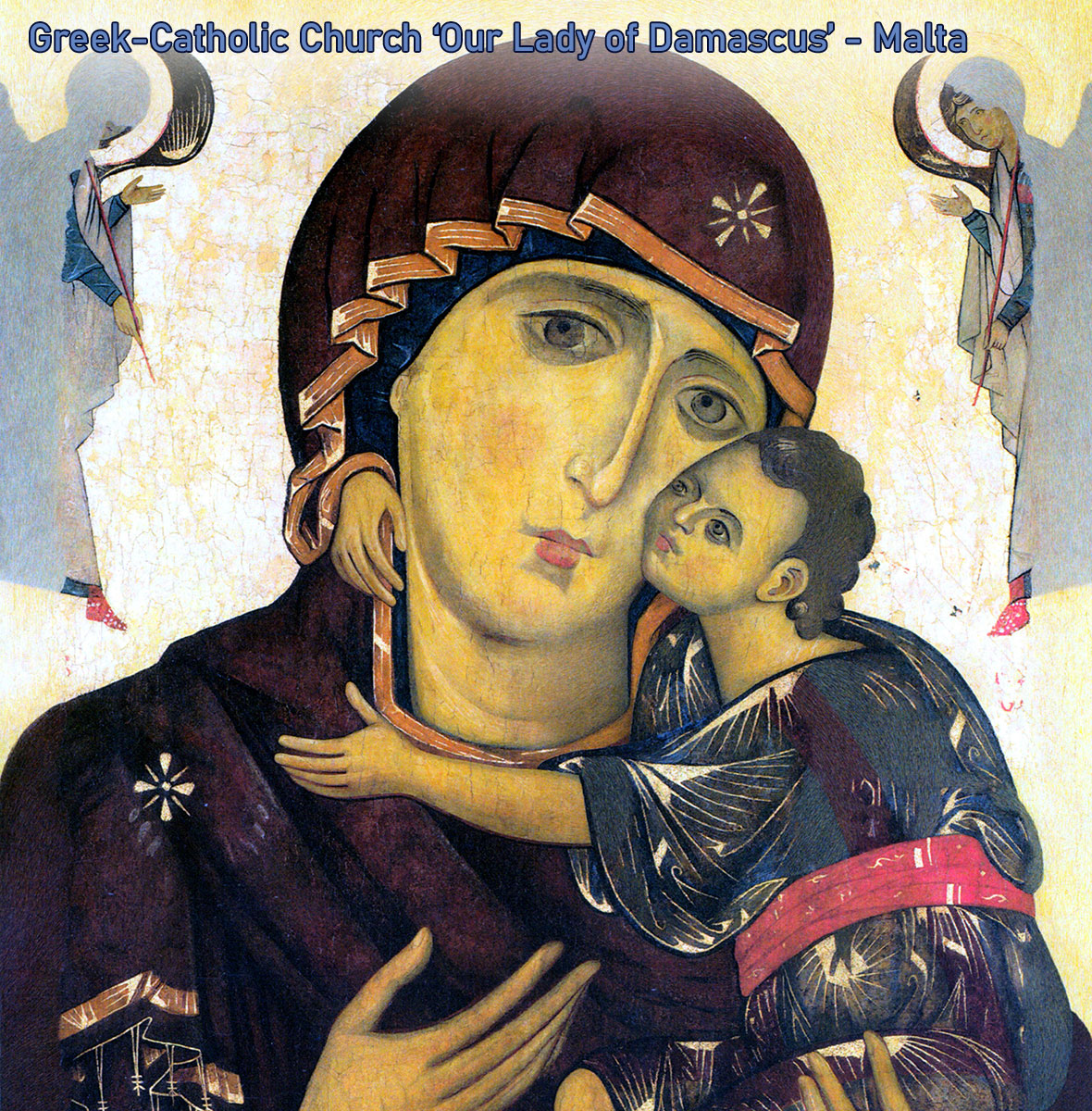Mons. George Mifsud Montanaro jagħti intervista dwar il-fidi u l-ekumeniżmu:
Facebook feed
"Greater love has no man than this, that a man lay down his life for his friends." John 15:13. ... See MoreSee LessGreek Catholic Church of Our Lady of Damascus in Malta updated their status.2 days ago
This content isn't available right now
When this happens, it's usually because the owner only shared it with a small group of people, changed who can see it or it's been deleted.Mass Schedule
Monday-Saturday Divine Liturgy at 7:30 a.m. Saturday Vespers at 6.30 p.m. Sunday Divine Liturgy at 9:00 a.m.
Related
-
"When they are not near a Roman Catholic Church, Roman Catholics are permitted to receive the Holy Communion in Orthodox Churches; and the same is also extended to Orthodox when they are not near an Orthodox Church." (From the book The Thyateira Confession p. 69, written by His Eminence Athenagoras Kokkinakis, Orthodox Archbishop of Thyateira and Great Britain, published by The Faith Press, in 1975, with the blessing and authorisation of the Ecumenical Patriarchate of Constantinople.)
-
"Επιτρέπεται εξ απόψεως Ρωμαιοκαθολικής να μεταλαμβάνουν εν καιρώ ανάγκης οι Ρωμαιοκαθολικοί εις Ορθοδόξους Εκκλησίας και οι Ορθόδοξοι εν καιρώ ανάγκης να μεταλαμβάνουν εις Ρωμαιοκαθολικάς Εκκλησίας." (Από το βιβλίο The Thyateira Confession σελ. 209, υπό του Σεβασμιοτάτου Αρχιεπισκόπου Θυατείρων και Μεγάλης Βρεττανίας Αθηναγόρου Κοκκινάκη - εκδόσεις The Faith Press - 1975, με την ευλογία και εγκρίση του Οικουμενικού Πατριαρχείου Κωνσταντινουπόλεως.)
Facebook feed
"Greater love has no man than this, that a man lay down his life for his friends." John 15:13. ... See MoreSee LessGreek Catholic Church of Our Lady of Damascus in Malta updated their status.2 days ago
This content isn't available right now
When this happens, it's usually because the owner only shared it with a small group of people, changed who can see it or it's been deleted.Greek Catholic Churches
- Apostolic Exarcate of Bulgaria
- Archeparchy of Presov – Slovak Greek-Catholic Church
- Bielorussian Greek-Catholic Church
- Cathedral of Saint Nicholas of Mira in Lungro
- Catholic Church of Greece
- Church of Saint Athanasius of the Greeks – Rome
- Church of Saint Joseph, Tinos (Greece)
- Church of the Most Holy Saviour in Cosenza
- Eparchy of Lungro of the Italo-Albanians of Continental Italy
- Eparchy of Piana degli Albanesi, Italo-Albanian Church
- Greek-Catholic Exarcate of Greece
- Greek-Catholic Exarchate of Miskolc in Hungary
- Hungarian Greek-Catholic Church
- Melkite Eparchy of Tripoli
- Melkite Greek-Catholic Patriarchate
- Romanian Greek-Catholic Church
- Romanian Greek-Catholic Church – The Community in Italy
- Ukrainian Greek-Catholic Church
- Ukrainian Greek-Catholic Church in Italy
- Ukrainian Greek-Catholic Eparchy of Stamford
Oriental Colleges
Institutions
Miscellaneous
- Archdiocese of Malta
- Blog about the theology of the Christian Orient and Orthodox spirituality
- Catholicus-Laicus
- Diocese of Rome
- Ecumenical Patriarchate of Constantinople
- Exarchic Monastery of Saint Mary in Grottaferrata
- Holy See
- Monakos – Monastic spirituality
- Monastery of Chevetogne
- Monastery of Montserrat
- Oriente Cristiano
- Paleografia Greca
- Vatican Information Service (VIS)
- Φως Φαναρίου
Church tour


